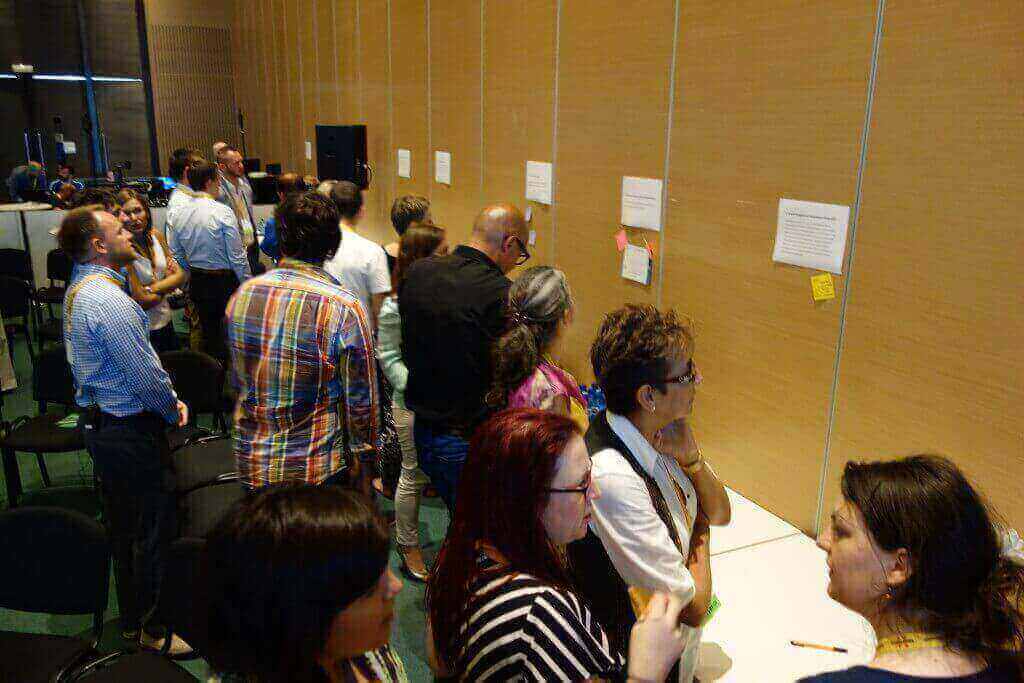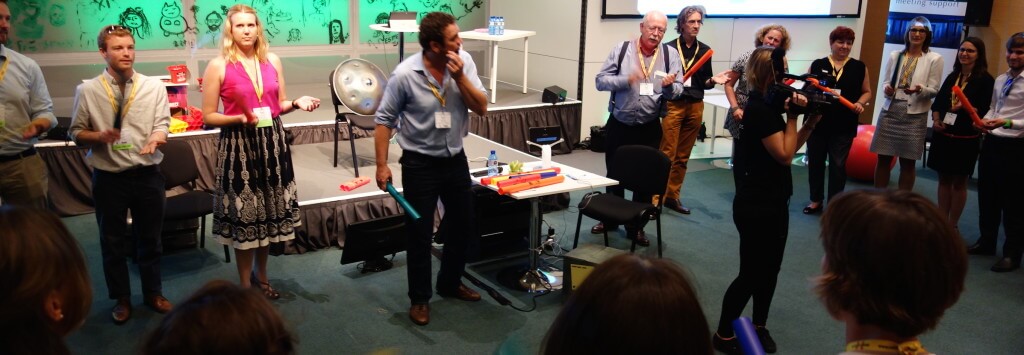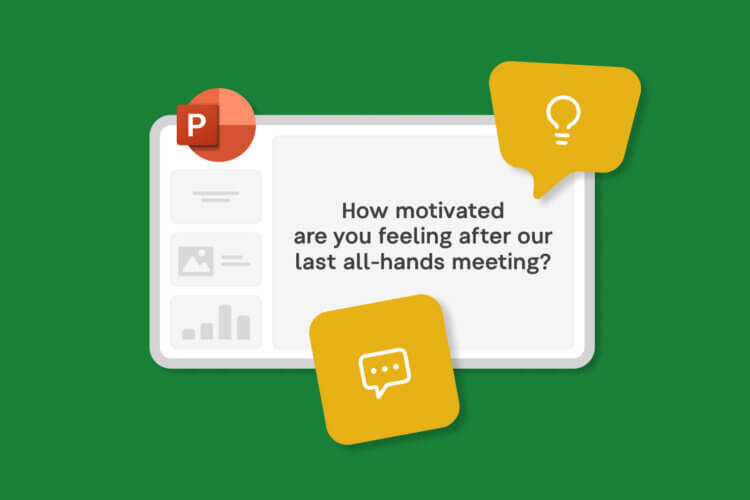You know the situation. You bring your delegates to a conference room and seat them in the audience. They cross their arms, put on a teach-me face, and expect presenters to teach them new stuff or skills without any active involvement.
As many social scientists point out, this is not how effective adult learning or andragogy works. Passive learning, which most presentations are considered to be, is an outdated and ineffective way to teach adult delegates a new set of skills or to impart knowledge. So what is the right way?
Opposed to traditional presentations, andragogy emphasizes the value of the process of learning. It uses approaches to learning that are problem-based and collaborative rather than didactic, and also emphasizes equality between teacher and learner.
American scholar and pioneer of adult education, Malcolm S. Knowles, proposed a set of assumptions about how adults learn best. Understanding these characteristics is crucial for designing event sessions that work, so you can help your delegates get the most out of your event and increase their ROI.
Rule #1: Give autonomy in adult learning
Adults are in charge of their own learning. Maybe it’s obvious, but for me, reading that statement was a great revelation, a flash of light. I just need to repeat this to myself again. Adults are in charge of their own learning.
Adult learners, which the majority of conference audiences is composed of, enter the learning session or training with a deep need to self-direct their own learning. Simply put, they want to be captains of their own learning. Since they control their own knowledge building, it’s important to realize that presenters or instructors can only help them acquire new knowledge and guide them in developing new skills, but cannot do the learning for them.
A funny thing is that many adults might easily fall back into the back-in-school mindset when they enter a session room with a typical theatre setup (and that’s why getting the educational environment right is so important). They just cross their arms and expect to be talked to. The duty of a good facilitator or instructor is to help them get rid of this feeling of dependency.
To direct them back to the self-responsibility track, the facilitator could ask participants to write down the learning objectives that they want to achieve during the session.
Practical advice
Give the session participants two to five minutes to reflect on what they want to achieve during the session. They can then either use sticky notes and post their goals on the wall or they can use digital tools to send their objectives in. With tech tools, they can also vote on the goals of the other members to help them amend and clarify their own learning priorities.
Throughout the session, instructors can comment on where they stand with fulfilling the learning goals.
In a nutshell
A skilled facilitator lets delegates steer their own learning. He or she simply helps them identify their learning objectives and guides them through the learning process.
Rule #2: Leverage the power of experience
Applying Knowles’ adult learning principles here means looking at delegates’ experience from two angles.
- Experience as an accumulated knowledge that your delegates bring with them to the session
- Experience that comes from delegates’ participation in learning activities
Experience as accumulated knowledge
By default, adults come to the learning session with a rich background of knowledge and experience. This is a valuable resource for themselves as well as for other participants. For this reason, effective adult education implements a range of experiential learning techniques (such as peer-to-peer discussion, case studies, problem-based learning) in order to tap into this knowledge resource.
Skilled instructors, therefore, take into account participants’ experience/knowledge and connect it to new ideas and skills, expanding and enriching their knowledge via the educational process.
Practical advice
At our educational session at Meet the Future, I ran a live poll to highlight how much experience participants had brought with them. Once the results were displayed, I thanked them and commented that it would be a great pity not to tap into this great knowledge potential.
We spent the end of the session in an educating peer-to-peer discussion where participants exchanged their experience.
Experience via participation
The second type of experience is achieved by getting participants involved in the learning process. Ideally, facilitators enable adults to become an active part of the learning process, take up the reins of the session and let them co-create the content.
The research says that adult learners possess 85% of the content that traditional presenters try to deliver. Skilled facilitators empower participants to teach one another that 85% of knowledge via collaborative learning activities. The instructors should only focus on delivering the remaining 15%.
Employing collaborative learning activities also has another benefit; it helps the facilitator keep the audience focused and engaged. Numerous brain studies show that the average attention span of an adult learner is only 10 minutes, and if the instructors don’t create soft breaks (such as playing videos, candid questions, discussions or live polls) for attendees to re-engage, their concentration simply fades away.
By the same token, researchers Zemke and Zemke revealed that learners remember and retain new information much better if they are provided with activities for reviewing newly acquired knowledge, such as written summaries, application exercises or discussions.
In a nutshell
An effective facilitator is able to tap into the delegates’ experience and connect it to new knowledge that he or she tries to deliver. Moreover, the facilitator is capable of creating experience via immersive learning activities.
Rule #3: Help them solve their problems

Knowles characterizes adult learners as goal-orientated. They are eager to learn when they have a need to know; when they are aware that gaining new knowledge or skills will allow them to cope with their tasks more satisfyingly or help them improve at what they do.
They often ask themselves the following questions, and you should keep these in mind when designing a session for them.
- What will this learning give me?
- Why do I need this information?
- How can I apply it in my job?
- How will it improve my professional skills?
Ultimately, adult education should be focused on and built around work-related and life situations rather than theoretical subjects. Many participants come motivated with specific objectives that they want to get out of the learning session and the instructors should direct and encourage this motivation.
According to the scholar Allen Tough, this motivation can be effectively channeled if the instructor:
- States clear instructional goals
- Uses experiential learning activities that tap into the participants’ knowledge
- Tries to incorporate individual learning needs into the session
- Lays out the benefits of learning something and the costs of NOT learning it
In a nutshell
An effective session facilitator is able to create the need to know in learners and channel their motivation by outlining the real-life value of what is being taught.
Rule #4: Make it relevant

Effective learning cannot be done without learners’ authentic engagement. And in order to achieve genuine interest, your learners need to perceive your learning content as being relevant to their job.
There are thousands of videos providing general knowledge available on the Internet that can be watched at people’s convenience. Conferences should thus become a place where people can find specific answers to their professional or personal situations in order to provide value. Failing to provide relevant content often results in reluctance to participate and engage, as the research by Fredricks et al. pointed out.
Once you sketch out a relevant learning plan, you need to ensure the right level of difficulty of a specific session in order to foster a sense of efficacy. The researcher Nicolás Pino James explains the notion of self-efficacy as “a student’s ongoing personal evaluation of whether he or she can succeed in a learning activity or challenge.” To put it simply, it’s a belief that I can do it!
In order to strengthen delegates’ sense of efficacy in learning activities, James suggests that the assigned activities should:
- Be only slightly beyond participants’ current levels of proficiency
- Regularly demonstrate participants’ understanding throughout the activity
- Use peer modelling
- Include feedback that helps participants make progress
Many world-class conferences and trade shows, such as SXSW or IBTM among many others ask speakers to mark the level of expertise needed for their learning sessions in order to help attendees choose the right education.
In a nutshell
A skilled facilitator is able to provide relevant, in-depth content that is slightly above delegates’ proficiency level to keep them interested and motivated.
Rule #5: Show respect
And finally, Knowles pointed out that adult learners like to be respected. They bring their experience and knowledge to the learning environment, and they would like to be acknowledged for that. If participants feel that they are being talked down to, preached to or patronized, their mind is occupied with dealing with these negative feelings instead of being focused on the learning process.
Facilitators should treat participants as equals, allowing them to voice their own opinions. However, despite their self-management and independence, adult learners crave for reinforcement and positive feedback during their learning process.
In order to create a learning environment of mutual respect, the scholar McLagan advises instructors to:
- Show respect for the learner’s individuality and experience.
- Be sensitive to the language used so that learners are not inadvertently offended.
- Be open to different perspectives.
- Treat the learners as individuals rather than as a group of people who are all alike.
- Support all learner comments by acknowledging the “rightness” that is in each comment and each person.
After applying the principles, the final learning environment could be characterized by:
- Mutual respect
- Collaboration rather than competition
- Support rather than judgment
- Mutual trust
- Fun
In a nutshell
A skilled facilitator views delegates as peers and creates a learning environment of mutual respect where individuality and experience are valued.
In conclusion
This article presented Knowles’ five principles of adult learning and explained their relevance for educational programs in the events industry. The arguments presented here can be used as the basis that supports any learning sessions that cope with adult learners.
This article thus offered the reader a robust pedagogic background for developing effective adult education. Keep these notions in mind when you are designing your next session, and your delegates will thank you for it.





